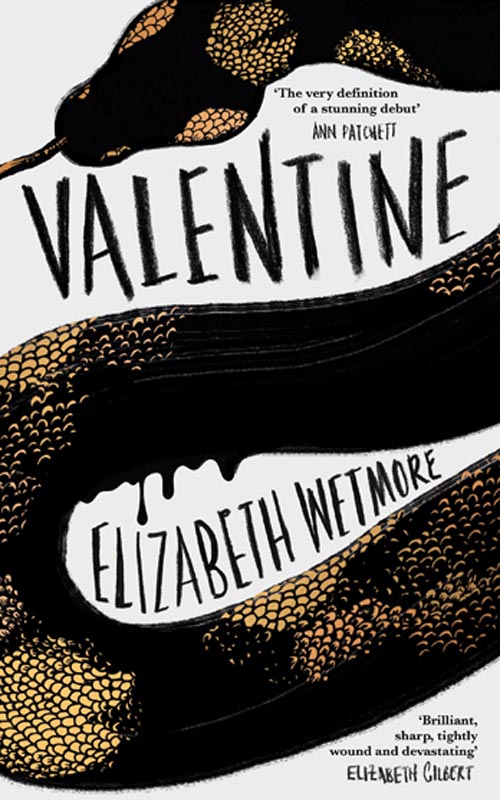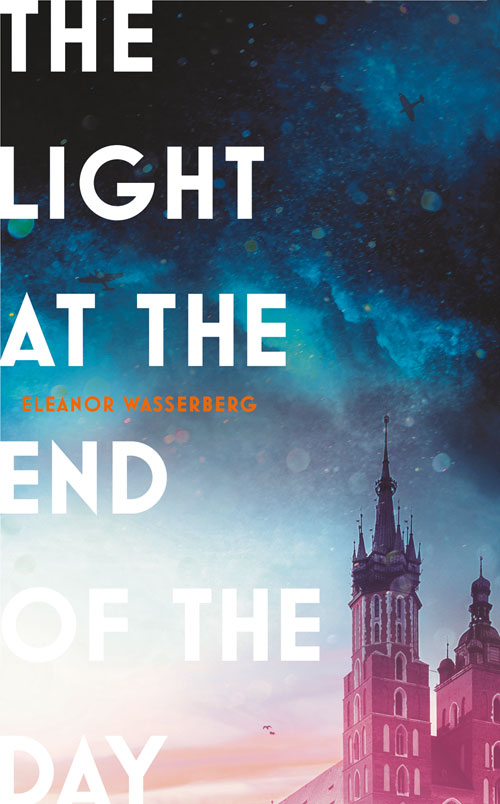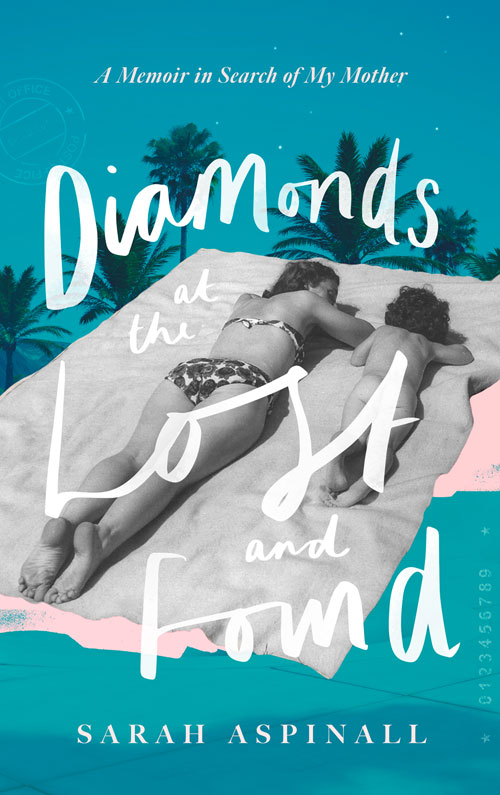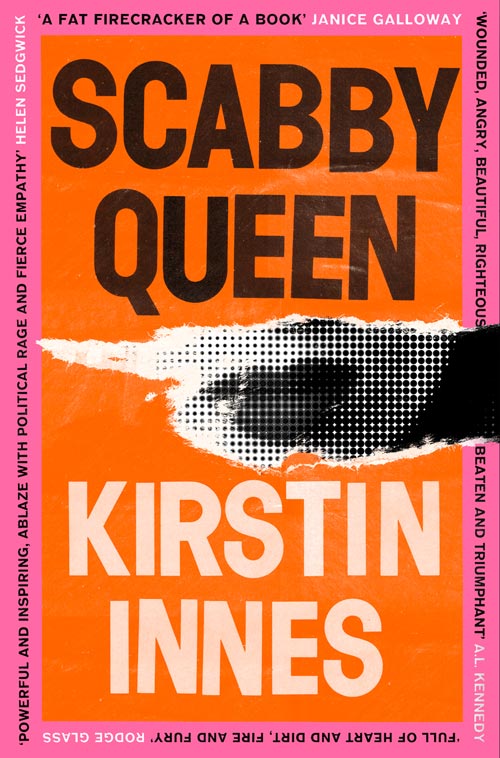An introduction
I have been asked to write a few words about the origins of my debut novel, Valentine. This should be a simple enough task, and one that every writer who is fortunate enough to sell her book should be prepared to complete in a timely fashion.
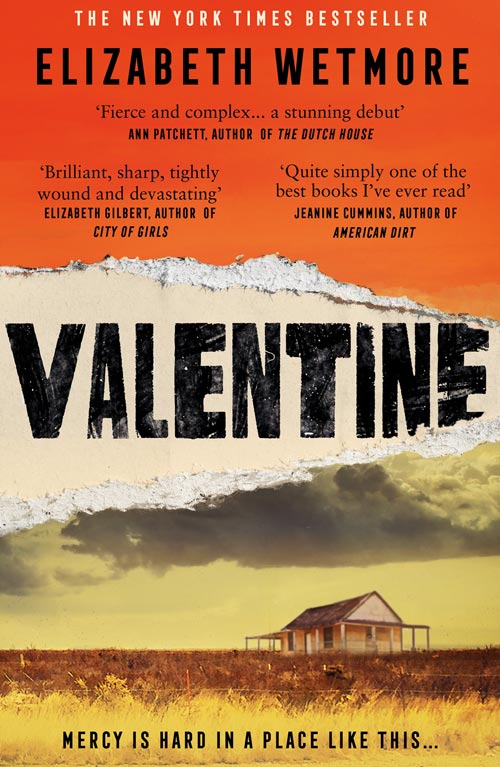
How did I get the idea for the book? How long did it take to write? Where do my characters come from? How much of the book is autobiographical? And yet, shortly after I sold my book, when this question was first posed to me in an “author’s profile,” I sat at my desk, on and off, for weeks, trying to figure out how to answer the simplest of questions about a book that I had privately been calling “this damn book” for nearly a decade.
Set in 1976, in the oil patch town of Odessa, Texas, Valentine explores the aftermath of a brutal crime against a local girl and its lingering effects on the town’s women and girls. The story is told through alternating points of view—among them, a mother who makes the heartrending choice to abandon her daughter, a child who befriends a veteran who finds himself stranded in town, a waitress who hopes to make a better life for herself and her young daughter, and an old woman who thinks she has nothing left to live for.
Unless you closely follow high school football, or have ties to the oil industry, you’ve probably never heard of my hometown. Odessa is a smallish city that feels like a smallish town, at the southern end of the Llano Estacado. Sometimes described by locals as “three hundred miles from everywhere,” Odessa is situated in the vast, oil-rich region known as the Permian Basin. It is a flat, treeless place—250 miles wide and 300 miles long—and by almost any measure, homely as an old mutt and full of a whole lot of nothing, except oil and natural gas. There’s an old joke that Texans love to tell tourists: Why did God give oil to West Texas? To make up for what he did to the land.
In many ways, I’m writing about a Texas that no longer exists. In many ways, Texas is better now. More complicated. More voices are being heard—politically, culturally, and artistically. But in other ways—ways that profoundly impact its citizens, the nation and the entire planet—Texas hasn’t changed a bit. Nowhere is this more true than in the isolated areas of West Texas. A quick glance at the Texas Tribune or Texas Monthly provides ample evidence that there are powerful voices (virtually all of them male) doing their damnedest to suppress the votes of people of color, to prevent women and girls from accessing the healthcare they need, and to gerrymander the state into a permanent state of right-wing oblivion. And today, as in 1976, public education in places like my hometown is, at best, incomplete and insufficient. At worst, it is ahistorical, anti-science, and deliberately sets about to undermine and diminish the stories of women, people of color, and anyone else whose story doesn’t fit into the longed-for paradigms of a significant segment of the population.
In 1976, I was nine years old, about the same age as the little girls who live on Larkspur Lane. Then, as now (I suspect), I was given to understand that there were two types of girls in my hometown—those who stayed and those who left—and I was determined from a very young age to be among the latter. A common story about girls who leave geographically isolated, deeply conservative hometowns that are economically dependent on a single resource, usually one that is nonrenewable, goes something like this: A bright student, a standout in her English class, wins a scholarship to the University of Texas at Austin, and never looks back. Less common is the story of the mediocre (at best) student who kicks around her hometown for a couple of years after high school, driving out to the oil patch to get high, fucking the local boys and trying not to get pregnant, pilfering beer and cig money from her mother’s purses, her little sister’s piggy bank, the till at work. These are the girls who end up staying. But if they do leave, it’s often under a cloud of scandal, with no money and no particular plan, looking backwards for just long enough to take a flamethrower to the lives they are leaving behind. I was one of those girls who fled my hometown under a cloud of conflict and drama, tumbling headlong into the great, wide world, with few plans and even fewer survival skills. To make sense of a life, one must be able to see it clearly. To make art, one must be able to see her subjects through a lens of empathy, compassion, and love. And this takes time. In my case, about thirty years.
I was four months pregnant with my son and recently laid off from my job teaching composition to college freshmen when I began work on a book that, I imagined then, would be a straightforward continuation of a project I had begun in graduate school. By then, I had enough distance and, I thought, perspective on my hometown to write something more than a sad, self-involved bildungsroman that amounted to little more than a cry in the wilderness. I had traveled a bit and worked a variety of jobs that included waiting tables, bartending, and what felt like a hundred years of working retail. I had been married and divorced, left other towns under other clouds, pointed flamethrowers toward whatever fragile life I had cobbled together. Somehow, I managed to get a college degree and, at the encouragement of a writing teacher, I even managed to sneak into the Iowa Writers’ Workshop, where I spent the entire first semester waiting for someone to call security and have me removed from campus.
My book, which I did not dare to call a novel, or a collection, or anything really, other than “my book,” was to be set in a town called “Capernaum,” a stand-in for my hometown, much in the same way that “Thalia” was a stand-in for Larry McMurtry’s hometown of Archer City (about 300 miles from Odessa). I chose “Capernaum” because there were no other towns in Texas with that name and because it is mentioned in the New Testament as a place of faithlessness, as well as the hometown of several apostles. Thankfully, I quickly jettisoned this idea.
Although it had a different title, several actually, Valentine began as a story about a young woman, a wife and mother, who must contend with an injured stranger who has come to her door. As a story, I hoped it would be contained, devastating, and perfect—as the very best short stories are wont to be. In those early drafts, my protagonist’s voice was clear to me from the beginning. I had spent my entire childhood eavesdropping on my mother and her girlfriends as they sat on the back porch with cigarettes and mixed drinks, rehashing their days and bitching about bosses, husbands, in-laws, and us kids.
I knew their voices as well as I knew the terrain—the dust and oil derricks, the relentless sun and heat, the graft and violence that comes with each and every oil boom, the raw desperation that takes hold when the bottom falls out of the oil markets. The cadences of their speech, the lifts and dips, the elongated vowels and extra syllables that distinguish a Texas drawl from other regional accents, the quick, low murmur when they shared bits of news that they deemed unsuitable for little girls to hear—these were all clear to me from the beginning. I expected to use those voices to write a book about a young woman who leaves the suffocating confines of her hometown and never looks back. As it turned out, the lives of those women on the back porch made for better fiction—something I didn’t realize, indeed could not realize, for many more years.
How many? Depends on how I count the years, I suppose, but if I start the clock at the first sentences I wrote that turned into a story that would eventually turn into a draft that would eventually become Valentine—about fourteen years. But like many artists, I must also account for the months and years when I hardly wrote at all, focused as I was on paying the bills, being a friend and a mate, raising my son, confronting my own demons—in other words, the stuff of a life that I apparently had to live before I could write Valentine.
A few years ago, during a particularly bleak period in my writing life, when I had become certain that I was not capable of writing this book, I came across these words from Don Delillo and copied them on a 3×5 notecard, which I taped above my desk. He wrote, “Do you know why I believe in the novel? It’s a democratic shout. Anybody can write a great novel, one great novel, almost any amateur off the street. . . . Some nameless drudge, some desperado with barely a nurtured dream can sit down and find his voice and luck out and do it. Something so angelic it makes your jaw hang open. The spray of talent, the spray of ideas. One thing unlike another, one voice unlike the next. Ambiguities, contradictions, whispers, hints.”
Please don’t misunderstand: I have never, and do not now, think of my book as a “great novel.” Nevertheless, Delillo’s words kept me afloat.
I was also buoyed by a great line from an old Leonard Cohen song: Every heart to love will come, but like a refugee. To write this book, I had to make my peace with the characters who interest me most: cowards masquerading as bad-asses; liars and thieves; characters who believe they are not up to the task, who cannot imagine themselves as heroes, who need to say they’re sorry.
And I have tried always to cleave to a piece of advice I once heard about writing: If you’re going to write fiction, it’d better be true. Sometimes, unfortunately, I lost that thread of courage that bound me to the book, and that slowed me down some. At some point it occurred to me none of this was worth doing if I wasn’t willing to risk failing miserably, to tell the stories and let the chips fall where they may. For me, that meant learning more about where I was from, and it meant being willing to follow my characters wherever they led me—however rocky that terrain might be. In the end, the place is real and the voices are real. The characters and the stories are fiction.
One of the most meaningful comments about Valentine I’ve received so far came from an early reader who said that she felt as if the author had written the book to save her own life. Indeed I did. And I am and really, aren’t we all, always, writing, and reading, to save ourselves, and each other? Surviving the page, one of my writing teachers called it. Telling stories with a sense of urgency, a sense that this story cannot wait another minute. That it matters, that the lives of these women and girls matter. In the end, I wanted to write something beautiful and true for my characters: Glory and Corrine and Mary Rose, Suzanne and Karla, Ginny and Debra Ann Pierce. Theirs were the stories I wanted to tell. These women, these girls. I hope I’ve done them justice.
Valentine is out now.
